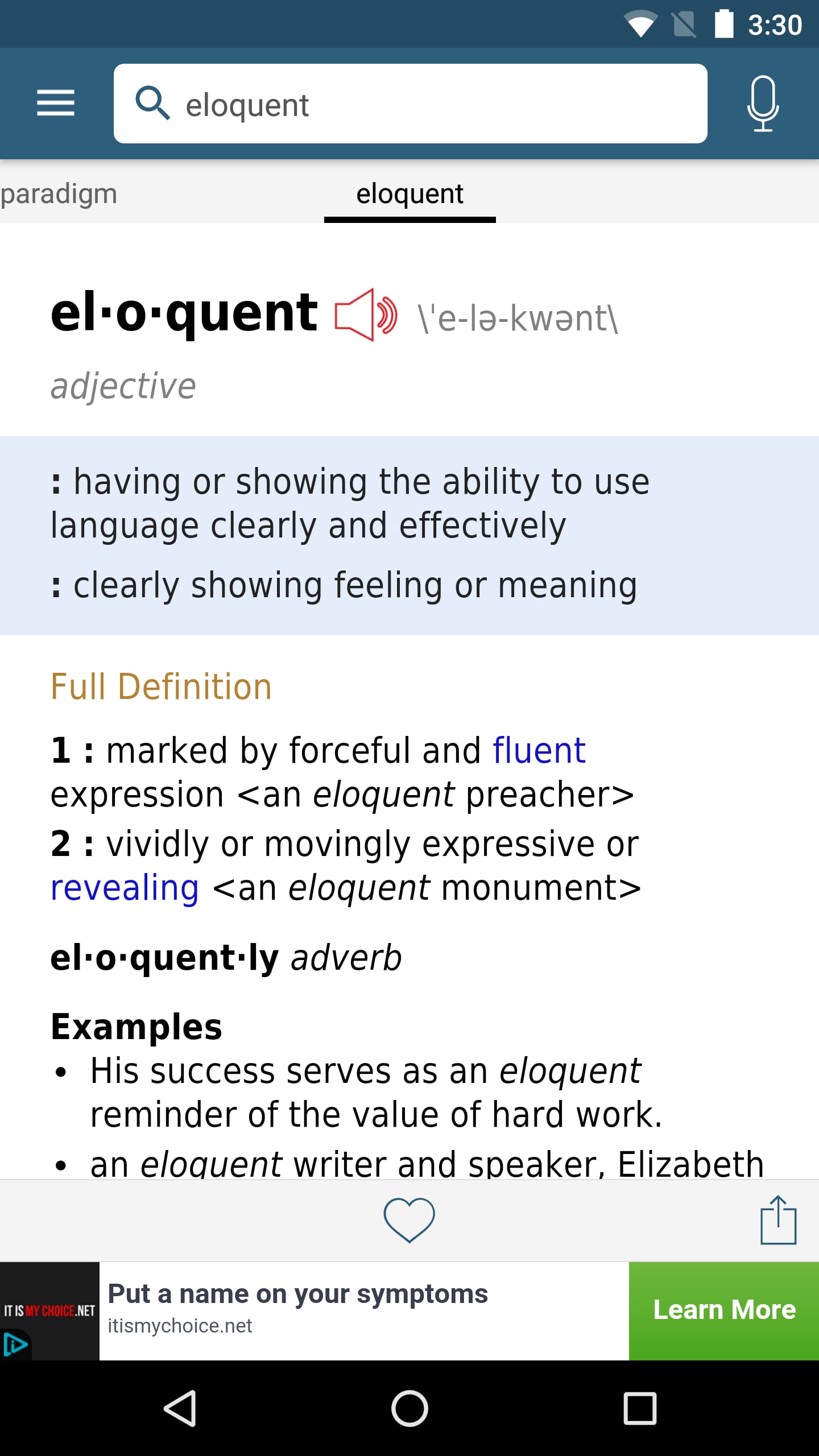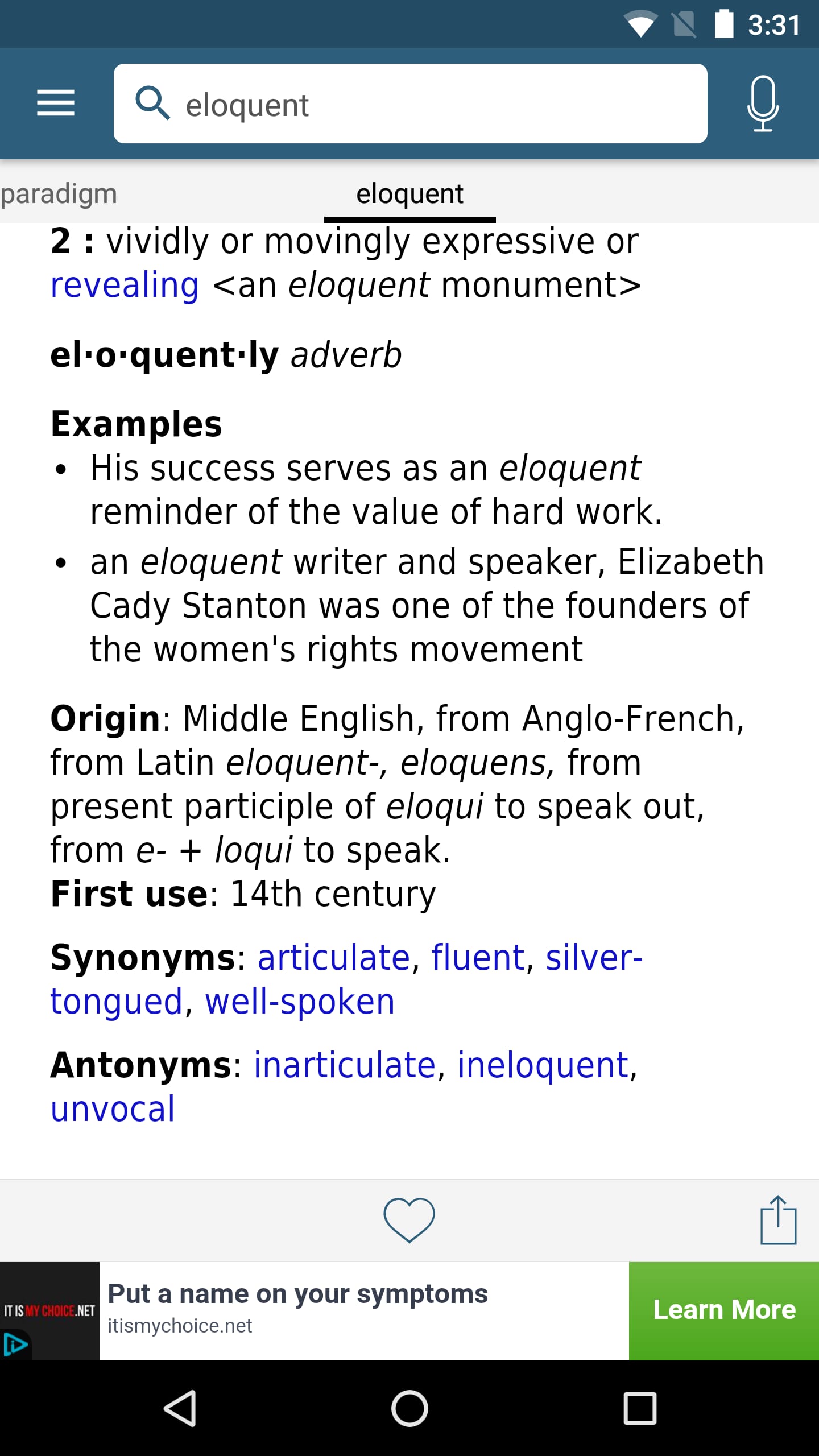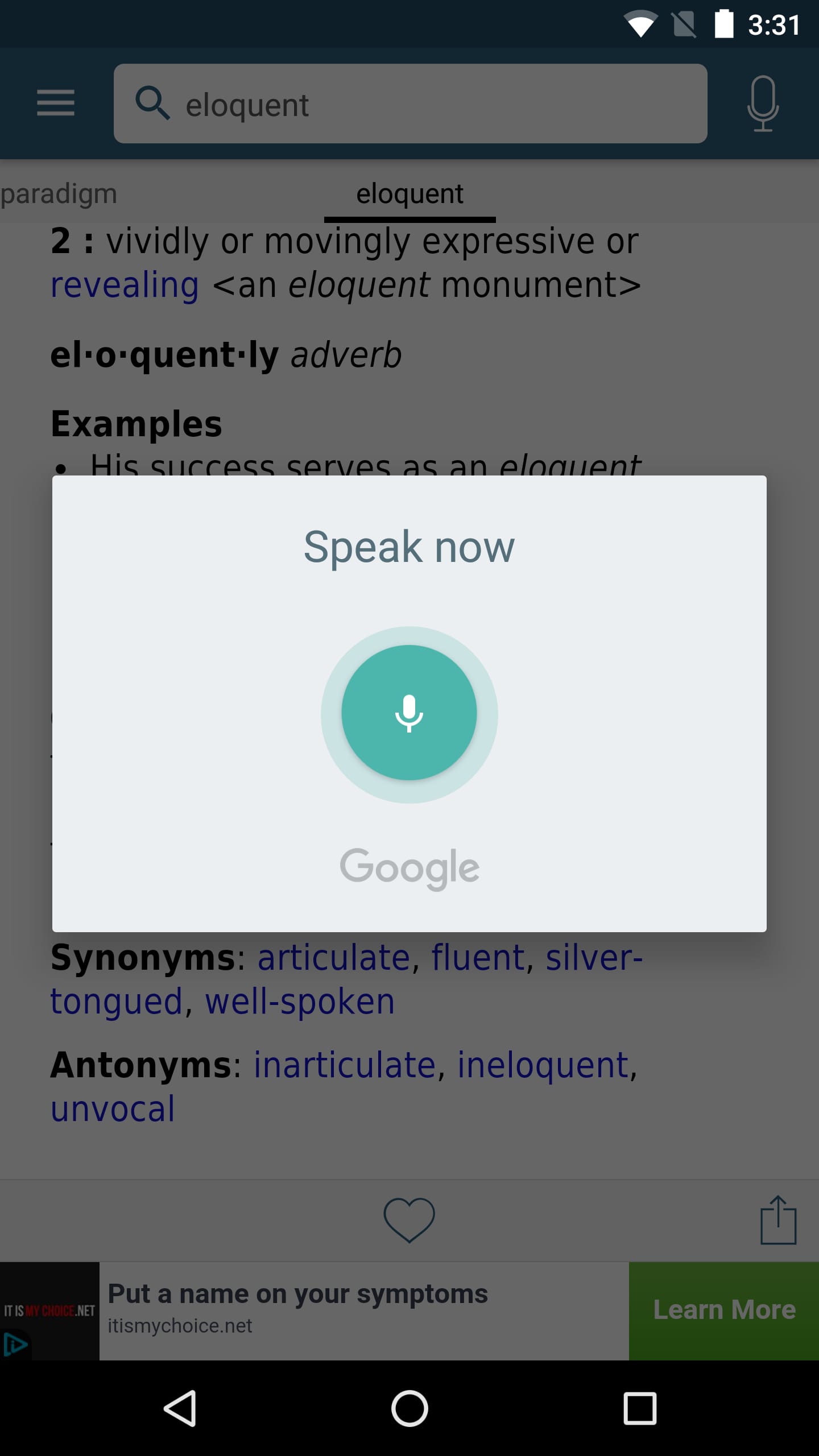 |
|
| Rating: 4.3 | Downloads: 50,000,000+ |
| Category: Books & Reference | Offer by: Merriam-Webster Inc. |
Have you ever come across a word and found yourself puzzled by its meaning? Or perhaps you’re a wordsmith looking to expand your vocabulary? Look no further than the Dictionary App, a powerful tool that brings the world of words to your fingertips. With this app, you can quickly and easily access definitions, synonyms, antonyms, and more, all in one convenient place.
The Dictionary App is designed to be a comprehensive resource for language enthusiasts, students, professionals, and anyone who wants to enhance their communication skills. Whether you’re reading a book, writing an essay, or engaging in a conversation, this app provides instant access to a wealth of information to help you understand and utilize words effectively.
Features & Benefits
- Vast Word Database: The Dictionary App boasts an extensive word database, encompassing a wide range of terms from various disciplines and languages. With millions of words and their definitions, users can find information on virtually any word they encounter, making it an invaluable resource for language exploration.
- Offline Access: One of the standout features of the Dictionary App is its offline functionality. Once downloaded, the app allows users to access definitions and other information without an internet connection. This feature is particularly useful when traveling to areas with limited connectivity or when studying in places where internet access is not readily available.
- Word Pronunciation: The app offers audio pronunciations for words, enabling users to hear how a word is correctly spoken. This feature is especially beneficial for language learners and individuals who want to improve their pronunciation skills. Listening to the correct pronunciation helps users build confidence and develop a better understanding of how words should sound.
- Word of the Day: The Dictionary App provides a “Word of the Day” feature that introduces users to new and interesting words every day. This feature helps expand vocabulary and encourages users to learn and explore words outside their usual range. It’s a great way to make language learning a daily habit.
- Word Search and Bookmarks: Searching for specific words is a breeze with the app’s search functionality. Users can quickly look up words and access their definitions, synonyms, and antonyms. Additionally, the app allows users to bookmark words for future reference, making it easy to revisit and review them whenever needed.
Pros
- Knowledge and Learning: The Dictionary App offers an abundance of knowledge and learning opportunities. With its vast word database, users can deepen their understanding of language, explore new words, and improve their overall communication skills. The app serves as a valuable tool for language enthusiasts, students, and professionals alike.
- Convenience and Accessibility: Having a dictionary at your fingertips simplifies the process of looking up words. The Dictionary App provides easy access to definitions, pronunciation, synonyms, antonyms, and more, making it convenient for users to clarify meanings and enhance their language proficiency. Its offline functionality ensures accessibility even in areas with limited internet connectivity.
- Language Expansion: The “Word of the Day” feature helps users expand their vocabulary by introducing them to new words regularly. This feature encourages continuous learning and provides an opportunity to discover words that might not be encountered in everyday communication. Users can gradually build a rich and diverse vocabulary, improving their language skills over time.
Cons
- Limited Language Support: While the Dictionary App covers a wide range of words and languages, it may not have comprehensive coverage for every language. Users seeking in-depth information on less widely spoken languages or specialized terminologies may find the app’s language support limited.
- Lack of Contextual Usage: While the app provides definitions, synonyms, and antonyms for words, it may not always offer contextual examples or usage guidelines. Understanding how words are used in different contexts is crucial for effective communication. Users may need to consult additional sources or rely on their own knowledge to fully grasp the nuances of a word’s usage.
- App Navigation and Interface: Some users may find the app’s navigation and user interface less intuitive or visually appealing compared to other dictionary apps. While functionality is the primary focus, a more streamlined and user-friendly interface could enhance the overall user experience.
Apps Like Dictionary
-
Merriam-Webster Dictionary: Merriam-Webster is a renowned name in the world of dictionaries. Their dictionary app offers a vast word database, audio pronunciations, example sentences, and a “Word of the Day” feature. It provides comprehensive coverage of English words and is a trusted resource for language enthusiasts and learners.
- Oxford Dictionary: The Oxford Dictionary app is another popular choice for language reference. It offers definitions, pronunciations, synonyms, antonyms, and example sentences. With its authoritative content derived from Oxford’s extensive language research, it is a reliable tool for exploring the English language.
- Google Translate: While not strictly a dictionary app, Google Translate is a versatile language tool that provides translation services for various languages. It includes a dictionary feature that offers definitions, translations, and example sentences. It’s a useful app for individuals looking to bridge language barriers and expand their linguistic horizons.
These three apps, like the Dictionary App, offer valuable language resources and features. Depending on your specific needs and preferences, you can choose the app that best suits your requirements and enhances your language learning or communication endeavors.










